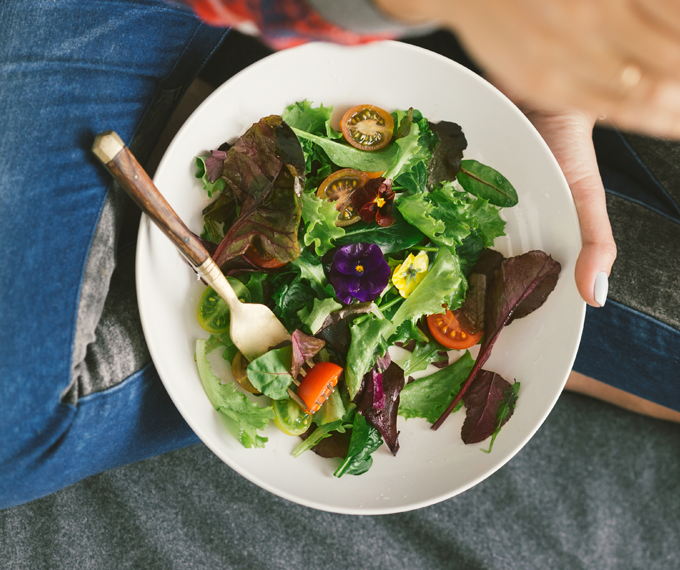STRESS CAN ACTUALLY MAKE YOU GAIN WEIGHT
That’s right. We suspect that it has something to do with a hormone called Cortisol that the body releases when it’s under stress. Cortisol is essential to health, without it we would probably pass out during stressful times but it has a few negative side effects such as weight gain. What's worse, cortisol tends to promote fat storage, specifically around the waist, which is a real problem area for many people
A good way to relieve stress is to exercise
Exercise is so good for you in so many ways. Not only does it help to relieve stress but it also builds lean muscle, and we all know that lean muscle burns calories faster than fat tissue, helping you to lose weight faster.
CUTTING OUT COFFEE WILL HELP YOU LOSE WEIGHT
Besides all the other terrible things coffee does to your body one cup of coffee, first thing in the morning, raises your cortisol levels for the whole day.
If you do nothing else but remove coffee from your diet you'll lose about ten pounds in two months. And that's not even considering the sugar and the half and half you add to it.If you replace coffee with Green Tea not only will you get all kinds of great antioxidant benefits but you'll also get a cupful of things called catechin polyphenols which, amongst other things seem to help the body burn calories
Even diet soda can be deadly to your diet.
Liquid calories don’t trip our satiety mechanism…they don’t make us feel full. So we keep on drinking them and don’t see them in the same way we do food. We always think about overeating– never overdrinking but liquid, especially soft drinks, can have a lot of calories. There are approximately nine packages of sugar and close to 150 calories in one 12-oz can of soda or juice! Smoothies and coffee drinks can have anywhere from 250 to 500 calories! And that's excluding the whipped cream. If a person who drinks 3 cans of soda per day stops drinking soda all together, that person will lose about 7 pounds in six months just from not drinking soda.
Diet sodas can be even worse, We see the word diet and think it means that it contains no calories and we just keep drinking. Couple that with a standard starvation diet that usually accompanied diet soda (you are on a diet of course so that means starvation ) and before you know it you’ve downed a couple of hundred calories a day while your depriving yourself of real nourishment.
An astonishing 55% of the population is considered overweight or obese
97 million American adults - according to the new NHLB guidelines.
Only 14.4% of the adult population claims to engage in regular, vigorous exercise. More than a quarter of Americans - 28.7% - admit they do not participate "in any physical activity.”
Little things can add up
Just as little bad habits over many years can lead to obesity so good habits can also accumulate. Simply cut Soda and coffee out of your diet and in six months you could be twenty pounds lighter. Try adding other small changes like parking a little farther from the office and walking a little more each day. Take the stairs a couple of times a day.
Weight loss of only 5–10 percent of body weight may improve many of the problems associated with overweight, such as high blood pressure and diabetes. Even a small weight loss can make a difference.
Losing weight too fast can be detrimental to your long term success
If you are trying to lose weight, do so slowly and steadily. A generally safe rate is l/2–l pound a week until you reach your goal. Avoid crash weight-loss diets that severely restrict calories or the variety of foods. Extreme approaches to weight loss, such as self-induced vomiting or the use of laxatives, amphetamines, or diuretics, are not appropriate and can be dangerous to your health.
Slow steady weight loss is the best way to take off weight. Slow weight loss helps the individuals learn how to keep their eating under control by learning how to deal with stresses in healthy ways instead of covering them up with food. These individuals learn to adapt their diet to help them stay trim the rest of their lives, not just for the short time they are on the diet. These individuals generally do not go back to the bad eating habits which led them to obesity and/or addiction.
The more money you have, the more likely you are to exercise
20.5% of individuals with a household income of $50,000 or more participated in "regular, vigorous activity” whereas only 9% did among those with a household income less than $10,000.
The more educated you are, the more likely you are to exercise
Of those lacking a high school diploma, only 8.2% engaged in "regular, vigorous” exercise, while 46.5% admitted to "no participation in physical activity.” Among college graduates, 21.9% exercised in a "regular, vigorous” manner, while 17.8% were considered sedentary.
Water, first thing in the morning, is better than fruit juice
Fruit juice is high in sugar. Since most of us are dehydrated in the morning, water's the best thing to do the trick anyway.
A few deep breaths before eating can help you lose weight
Not only will it help you to slow down but the oxygen will help to metabolize the food better.
It’s called deliberate eating. It means not just giving in to hunger but enjoying and savoring the food completely. By taking a few deep breaths before starting a meal you feel fuller faster and after eating feel more satisfied.
Fat may not make you fat
For years, popular diet books assured the chubby masses that a low-fat diet was the key to weight loss. They were right…and wrong. "It’s calorie density—not fat—that determines how many calories people eat ,” says Susan Roberts of Tufts University in Boston . For 18 days, Roberts offered 14 people meals that were either low-fat (20 percent of calories from fat) or high-fat (40 percent fat). But, unlike other studies comparing high-fat and low-fat diets, these two regimens had the same amount of fiber, palatability, and calorie density (that's a food's calories divided by its weight). "When we kept calorie density constant, people on the high-fat diet ate no more calories than people on the low-fat diet ,” says Roberts. But her research doesn’t let fat off the hook, because it’s so calorie-dense. "Fat is important to watch out for, but low-fat foods that are high in sugar like Snack Well’s cookies and Entenmann’s cakes are also high in calorie density ,” says Roberts’s colleague Megan McCrory . The bottom line is that low-fat diets that are loaded with vegetables and fruits and other high-fiber, low-calorie foods may indeed help keep the pounds off. Diets filled with calorie-dense low-fat cakes, cookies, ice cream—and even bread, pasta, and crackers—may not.
You can blame only one-third of your weight problem on your genes
Although some rare genetic diseases are associated with obesity, you still maintain a majority of the control when it comes to your weight.
Generally, overweight people do not have enough liquids in their diet
The body needs at least eight cups of liquids each day to maintain basic functions Excess liquid is used to break down fats. Without the daily minimum of water, the body has difficulty breaking down the fats in the diet. Ten to twelve cups of water can quite literally flush fats from the body.
Some exercises are better than others
When it comes to dieting, the goal is to burn calories and different exercises do that at different rates. Here are some examples of the energy expended by a 150-pound person in 30 minutes of continuous exercise:
- Aerobics 200-250 calories
- Bicycling, Stationary 250-300 calories
- Bicycling, Actual 300-400 calories
- Running, 5-6 mph 300-350 calories
- Stair climber 200-250 calories
- Walking briskly 150-180 calories
Reduce your calories by 3,500 and you will lose 1 pound
That does not mean starve yourself. The goal is to maintain a healthy, balanced diet while reducing total caloric intake. If your trying to lose weight starving yourself is one of the worst things you can do. The key is, as we have said, slow and steady weight loss.
Alcohol may not be all bad
Alcohol contains 7 calories per gram, so it's nearly twice as fattening as carbohydrates or protein.
In addition, alcohol can encourage the munchies. This leads to extra calorie intake which can cause weight gain. That said , a major US survey has found that dieters who give up alcohol lose no more weight than dieters who include moderate amounts of alcohol in their diet.
Calories in Sample Drinks
- 4 Fluid oz Wine 95 calories
- 1 Brandy/Whiskey 125 calories
- 12 Fluid oz Beer 145 calories
- Regular soft drink 80-100 calories
Weight loss depends on your overall calorie intake. Reduce your calories by 3500 and you will lose 1 pound. So since alcohol is fairly high in calories with little or no nutrition, you will certainly save calories by abstaining.



